What I've learned I don't know about rose gardening
Nippstress Nebraska z5
last year
Featured Answer
Sort by:Oldest
Comments (18)
Related Discussions
10 things I've learned as a first year gardener
Comments (26)camp, I didn't realize it either until researching online and on gardenweb. "What are these cabbage lopers of which you speak?" (what the heck is a loper?) ... OHHHHHH, those gross lil green caterpillars I keep seeing. Gotcha! This has been fun to read everyone's input. There are too many gems to point them out individually, but I've learned that not only are garden bloggers really nice and helpful (per thyme2garden) but they are pretty funny, too! It's too bad I try to share the humor with my non-gardening friends and family ... (um, ok, everyone not on here!) and they give me the blank "I don't get it," stare. Such is life. I highly recommend the archived "so you want to grow a gardenia" thread... I read that a few months ago and was CRYING it was so funny. (I didn't even know what a gardenia WAS until that thread.) And it has given me the courage to venture into growing flowers this coming year ... once I make the lasagna beds this fall for spring ... and build a few more trellises ... and flip my compost ... and ask the restaurant down the street for coffee grounds ... and.. and.. and.. :P Oh, btw. The tomatoes are starting (in case anyone was troubled by my plethora of non-ripening tomatoes.) ... The gardening gods like me (at the moment ;) ). Thanks again everyone for sharing - Veronica...See MoreWhat I've learned so far about the 4-season thing ....
Comments (10)I also have raised beds in Connecticut and have a couple of them (4 x 12 ft) covered with low tunnels, 4' high, made from 1/2" PVC pipe. I've used them for many years but only as season extenders. I was never able to get any crops to reliably grow during Jan and Feb because of the single plastic cover and no heat. I found that spinach is one of the hardiest crops to winter over if it is about 2 or 3 inches tall in November, but it didn't actually grow much until early March, then it took off like a rocket. I also used the tunnels to start seeds in early March of cold-tolerant vegetables. There was no provision for automatic venting on sunny days and that caused big temperature swings by the time April rolled around. Very heavy wet snows also caused structural problems since the PVC was only half inch. I had a coldframe for a few years with an automatic vent and that actually worked better because it was lower and had less heat loss, but it was not large enough. Last fall I build a large hoop house over two of the raised beds; it is 12' long and 10' wide and about 7' tall and is made from 1" PVC and 6-mil single-ply construction plastic. No heat. It has survived some heavy snow loads without any bending or distortion. I didn't have time to plant anything in it last fall because it wasn't finished until December but I planted lots of cold-tolerant seeds in early February. They were covered with Remay to get the extra protection that Coleman suggests. A min/max thermometer showed the temperature got into the low twenties at night. This week I expect the night temps to stay above freezing. The seeds I planted in early Feb are doing well but the ones I started indoors in late Feb and put in the hoophouse 2 weeks ago are doing just as well or better. I intend to remove the plastic in summer and replace it in November so I don't cook the plants. Temperature control is tough without fans and I really don't want to get involved with electric heat and ventilation (I might change my mind some day). I just built an automatic window this week and installed it yeasterday; it is 30" by 36" with a univent opener. I really needed it because the air temp might be freezing when I leave for work and get really sunny and warm by lunch time. I am working on the second one this week. This is a challenge with a PVC hoophouse because of the difficulties involved in making a window on a curved surface. This summer I am going to dig around the raised beds and put foam board vertically around them as far down as I can dig (about 18" in my stony soil). This should keep it warmer in the winter. I will also put low tunnels inside but I only need thin plastic covering because it won't have snow on it. But they will have to be well sealed especially at the edges of the hoophose where it is coldest. Maybe I'll give in and put a small electric heater in the low tunnel but I will use it to keep it from freezing rather than try to grow things like tomatoes. Then I will be ready to try real 4 season growing; I recommend the book because of the interesting ideas in it and will be looking at this forum for best crops to grow. I'll let you know how It turns out. Bob B....See MoreWhat I've learned about Bluestar in 5 years
Comments (9)I have had my BS 36" RNB with grill installed for about two months. So far I love it. It is not perfect but I would buy it again in a heartbeat. The burners are awesome and gorgeous. The oven is huge and accurate. My baking has never been so good. The broiler is terrific. I made some beautiful ribeyes under it yesterday as a change of pace from the grill. The door does not get hot but the kick plate does and so do the knobs. The grill is good but not great. The back runs hotter than the front part so I have to move the food around a bit. I really wanted a grill because we don't have the ability to grill outdoors....See MoreHelp me !!!..I've had an affair and now don't know what to do
Comments (9)"The man that I'm involved with has had 3 failed marriages and done time for drug dealing" Well at least it sounds like you are getting what you deserve. "...since he's found me he's been given a new lease of life" Sure sweetie, he'll be a regular Mother Theresa now that he has you in his life. Reading too many romance novels are we? Sorry if I am coming off harsh, and I realize I don't speak for everyone here, their opinion might be a little more forgiving than mine. But as someone who's been put through the same hell by my piece of sh*t ex-wife that you are putting your husband though, I feel extremely entitled to offer my opinion, since you asked for opinions. I too was a "good honest man" (still am...lol!) who did not deserve it. I was always completely faithful to her. I worked my butt off getting a software business off the ground so my ex could be a stay-at-home for our two kids, which is what we both wanted from the start. And instead of being appreciated for working long days and weekends, then coming home and being a good dad and working on the house and all that, she eventually winds up resenting me for not being around enough and winds up having an affair with someone...which I didn't find out about for 9 months. When I found out, I said I understood (to a point) why she did this and wanted to fix our issues, and resolved to change some things make our marriage better. She said she wanted this too....but her heart was never really in it. Three years later she did it again....this time I told her I was done and we are now amicably divorced (on the surface anyway) and sharing custody or our two kids 50/50. I say "on the surface" because when I think of what she did to me, not only the affairs, but to string me along for years...knowing she wanted out but not having the courage to act like an adult end our marriage the right way before shopping for her next man, my blood freaking boils. I can't explain it, but I feel like I lived years of my life now in some giant lie...I was happy and thought things were pretty good. Good people DO NOT treat people like this. She completely disregarded me as a person, and did what was best for her, with NO regards for my feelings. I didn't matter at all....my pain was just "collateral damage" to her in getting what she wanted. To this day (5 yrs later), while I deal with her respectfully on a daily basis regarding the kids, deep down I wish nothing but bad things for her. The scars of being treated like this, by someone that you loved and treated with nothing but respect for 10+ years, do not heal easily. I suspect they never will. I (half) jokingly tell my friends that I just hope she dies before me so that I can take a big sh*t on her grave, as my final revenge. Well, now you know how your "good honest man" of a husband will feel about you when he finds out. And I hope your daughters do turn on you...you f*cking deserve it. There, you asked for opinions.....oh, and good luck with your new man, he sounds like quite a catch! This post was edited by mkroopy on Fri, Dec 7, 12 at 13:14...See MoreBenT (NorCal 9B Sunset 14)
last yearlast modified: last yearNippstress Nebraska z5 thanked BenT (NorCal 9B Sunset 14)Moses, Pittsburgh, W. PA., zone 5/6, USA
last yearlast modified: last yearNippstress Nebraska z5 thanked Moses, Pittsburgh, W. PA., zone 5/6, USAMoses, Pittsburgh, W. PA., zone 5/6, USA
last yearlast modified: last yearNippstress Nebraska z5 thanked Moses, Pittsburgh, W. PA., zone 5/6, USAnippstress - zone 5 Nebraska
last yearbart bart
4 months agobart bart
4 months agorifis (zone 6b-7a NJ)
4 months agonippstress - zone 5 Nebraska
2 months agolast modified: 2 months ago
Related Stories

FUN HOUZZEverything I Need to Know About Decorating I Learned from Downton Abbey
Mind your manors with these 10 decorating tips from the PBS series, returning on January 5
Full Story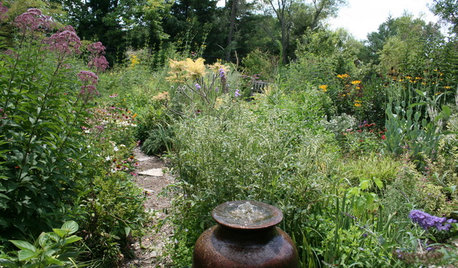
GARDENING GUIDESHow I Learned to Be an Imperfect Gardener
Letting go can lead to a deeper level of gardening and a richer relationship with the landscape. Here's how one nature lover did it
Full Story
LIFEWhat I Learned About Moving a Loved One to a Retirement Home
Setting up an elderly family member’s apartment in an assisted-care facility is a labor of love for this Houzz writer
Full Story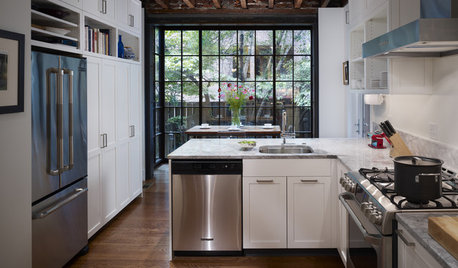
FEEL-GOOD HOME12 Very Useful Things I've Learned From Designers
These simple ideas can make life at home more efficient and enjoyable
Full Story
DECORATING GUIDES4 Lessons I Learned About Color in 2017
Toss out the rulebook and consider this designer’s insights into choosing and combining color at home
Full Story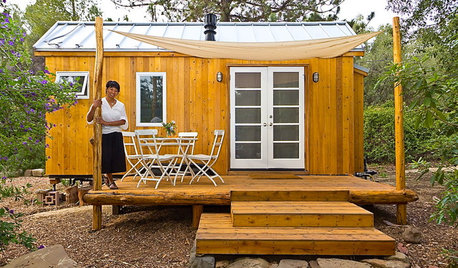
LIFEYou Said It: ‘Just Because I’m Tiny Doesn’t Mean I Don’t Go Big’
Changing things up with space, color and paint dominated the design conversations this week
Full Story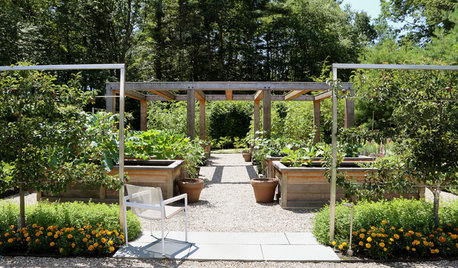
OUTDOOR PROJECTSWhat to Know About Adding or Renovating an Edible Garden
Learn what you need to create a plot that’s stylish and productive
Full Story
DECORATING GUIDESThe Dumbest Decorating Decisions I’ve Ever Made
Caution: Do not try these at home
Full Story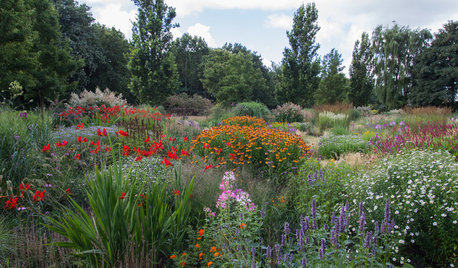
LANDSCAPE DESIGNTour 3 Marvelous Meadow Gardens and Learn About Their Plants
From rural Netherlands acreage to a Minneapolis rooftop garden, these wild and exuberant spaces surprise and delight
Full Story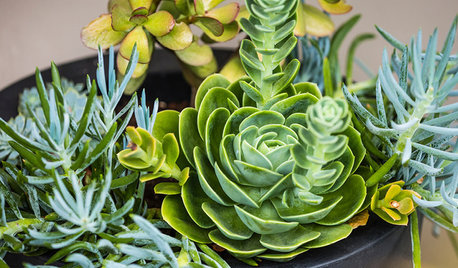
SUCCULENTSGardening 101: What to Know About Propagating Succulents
Here’s how to grow more succulents from the plants you already have
Full Story



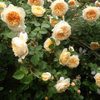


Sheila z8a Rogue Valley OR